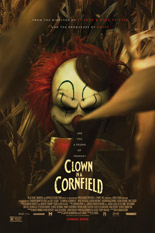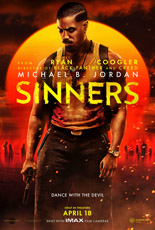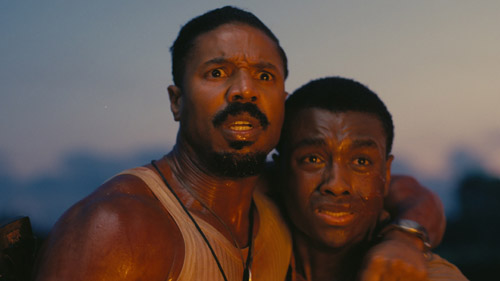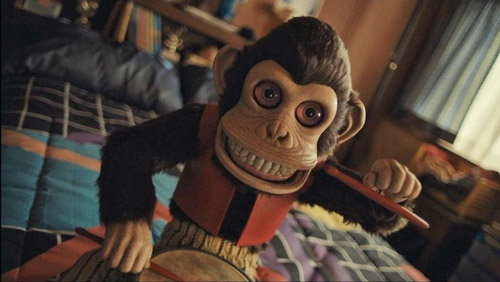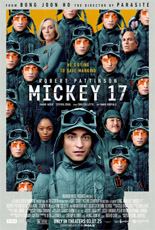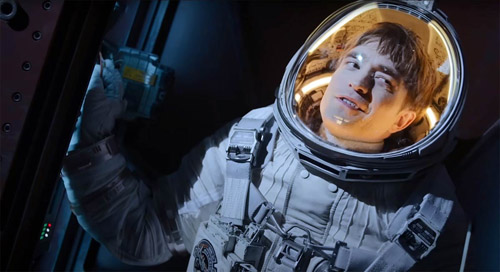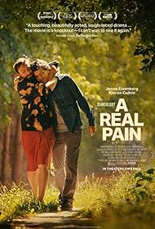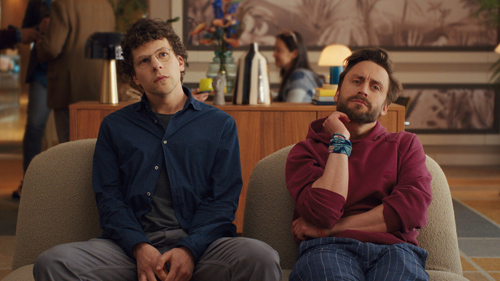
Aliens in a cornfield? Obviously. Murderous children in a cornfield? But of course. Mia Goth violating a scarecrow in a cornfield? Uh, sure. But a Clown in a Cornfield? Maybe we’re jumping the shark. Wait, that’s been in a cornfield, too?!
While Eli Craig isn’t the first to put horror on the cob, 2010’s Tucker & Dale vs. Evil showed a playful understanding of the genre — not originality — is the director’s strong suit. An adaptation of Adam Cesare’s 2020 novel, Clown in a Cornfield sees Craig drop an original story credit, too. This change in his routine doesn’t quite hit the highs of his first standout film. But in a world where Terrifier’s Art reigns supreme, the Midwestern clown holds its ground.
Looking for a fresh start, Quinn (Katie Douglas, Lazareth) and her doctor dad, Glenn (Aaron Abrams, Code 8), move to a seemingly quiet, rural town. As Glenn discovers the residents’ firm commitment to tradition, Quinn meets a classmate named Cole (Carson MacCormac, Shazam!) and quickly falls in with his group of friends looking to buck the old-fashioned values of Kettle Springs. However, the teens quickly discover the town’s mascot, Frendo, isn’t playing around when it comes to community’s way of life. As Frendo starts to prey on Quinn and her friends, they start to unravel the mystery behind the town’s killer clown.
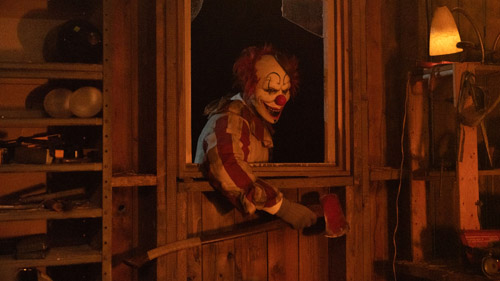
Unfortunate spoiler alert: Frendo isn’t from outer space. In fact, Clown in a Cornfield is significantly more grounded than you’d probably expect from Craig. While it doesn’t avoid humor outright, it doesn’t really try to channel it either. If it weren’t for casting Will Sasso (2012’s The Three Stooges) as the town sheriff, one could almost argue that Craig decided to take this flick a bit too seriously. Those who expect a return to Tucker & Dale’s uproarious gags — or, hell, even Little Evil’s — might find this clown running out of steam fast.
Granted, what makes Clown in a Cornfield at least somewhat interesting isn’t dependent on humor. It’s his straightest horror film yet, with a bit of classic slasher allusions thrown into the mix. It also dips its big, red shoes into an examination of generational tension. Unfortunately, it doesn’t dig particularly deep into this idea. It just kind of dances around it with about as much strength as a rubber chicken with a broken squeaker.
Which isn’t an entire miss, either. In the era of A24’s elevated horror, Clown in a Cornfield is admittedly very accessible. Similar to Cesare’s book, the movie is extremely easy to grasp. It’s not entirely inconsequential, either, as its romantic subplot is surprisingly deep and fresh. Still, it’s as if we’re trained at this point to expect something more from every horror film that isn’t franchised. And that’s probably unfair, given we need introductory films like this to get younger horror fans to dive deep.
Clown in a Cornfield has its moments, including a fair share of creative kills. Still, if you’re expecting some kind of in-depth dissection or even a few decent gags to wash down the mayhem, this cornfield probably isn’t for you. —Daniel Bokemper
Get it at Amazon.

